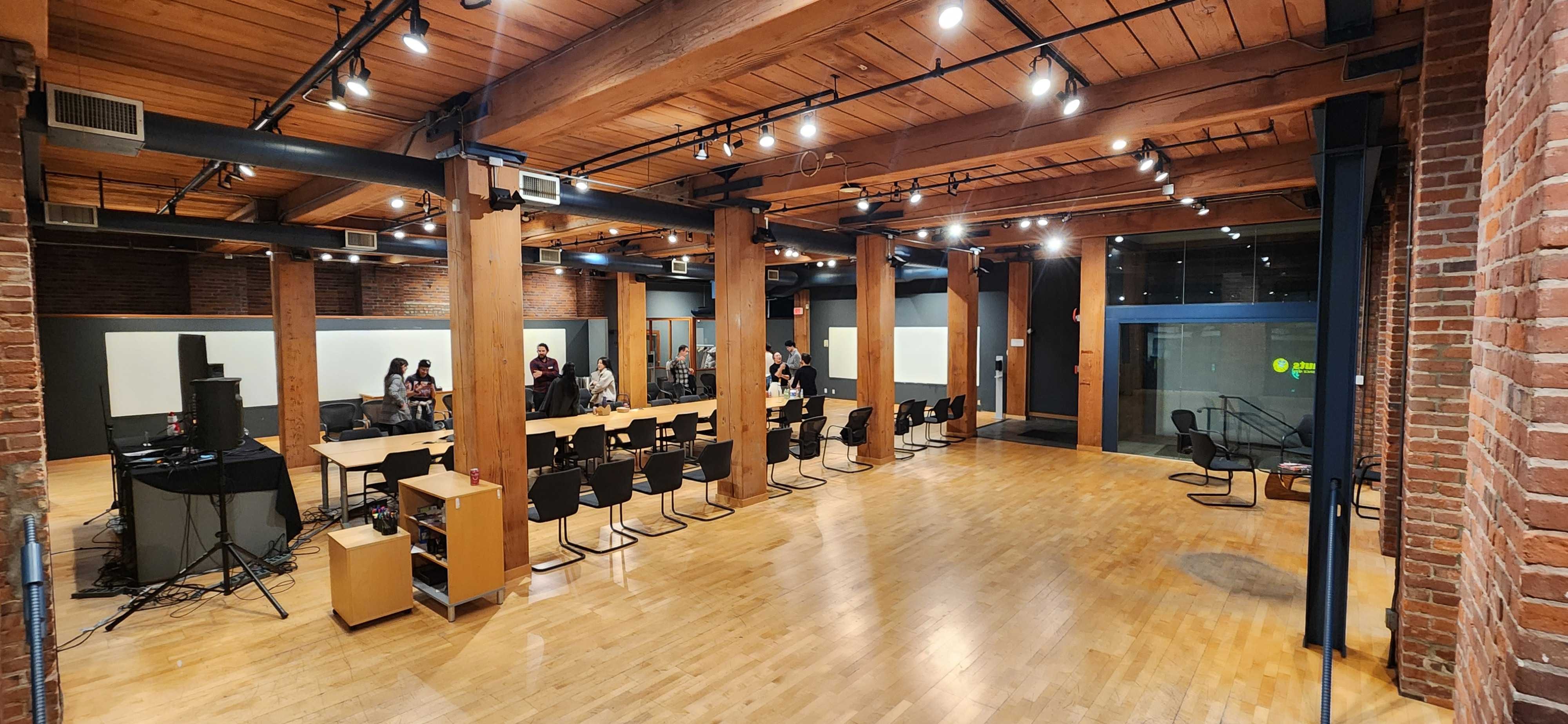Never miss another update.
Get news from the Handmade Network and Handmade Software Foundation delivered directly to your inbox.
Get news from the Handmade Network and Handmade Software Foundation delivered directly to your inbox.
TL;DR:
We are very excited to announce the Handmade Network’s first-ever in-person event: The Handmade Network Expo!
2025 was a quiet year for us where we focused on the fundamentals of the community: jams, projects, a healthy community, and interesting discussions. But we love seeing other people in person, and were sad that we didn’t have the opportunity last year. So we decided it was time to bring people together again, and with our renewed focus on real, tangible Handmade software, a day of demos seems like the perfect fit.
So: Join us in Vancouver, BC on June 6, 2026, for a day packed with demos, discussion, socializing, and celebrating the achievements of the talented programmers of the Handmade community!
(By the way, don't miss more news at the bottom. It's been a busy month!)
Nope. There will be no formal talks, nor any keynote speakers. It won’t be livestreamed. Instead it’s absolutely all about the software.
The goal is to pack the day full of demos, Q&As, discussion, and collaboration. We don’t want you sitting in one place all day; we want you socializing with others, asking questions, showing your own work, and being inspired. We want an atmosphere where, between scheduled demos, people can brainstorm around a whiteboard, pass around a laptop, or hook up to a projector for an ad-hoc presentation. In other words, we want an event defined as much by its attendees as by the formal schedule.
The Expo will be hosted at Global Relay’s beautiful event space in downtown Vancouver. It’s the perfect space for what we have in mind: a spacious floor plan we can adapt to our needs, beautiful views of the city, and WHITEBOARDS.

All the organizing work has been done by community member Matthew Currie (AbjMakesAPizza), who’s been running meetups in Vancouver since May 2024. He’s a game developer and Vancouver native, and has done an amazing job navigating our vague ideas for an in-person Handmade Network event. We’ve also had guidance from Demetri Spanos throughout the planning process, and his feedback has been invaluable in shaping the vision for the event.
We are still finalizing the details, but we expect ticket prices to be around $100 USD. We’re doing our best to keep costs low, and we’re not seeking to make a profit from this. If there are excess proceeds, they will be given to the Handmade Software Foundation so we can later deploy them in service of Handmade software.
As for travel, we’re currently looking into hotel and airline discounts, but have nothing to announce at this time. We know travel can be expensive, but because Vancouver is such a major travel hub, we hope it will be affordable nonetheless. Stay tuned for more info on this.
We’ll have a dedicated page for the event soon where you can buy your tickets and get more info as the event approaches. Make sure you’re subscribed to our newsletter below to be notified when tickets go on sale!
I'm really looking forward to seeing people in person again. It always means a lot to meet talented people who are similarly inspired to make Handmade software, and I hope it will be inspiring to all of you as well.
There has recently been a surge of people who are interested in going through Handmade Hero. It's heartwarming to see so many people still excited about it, almost 12 years since the first episode aired. So we figured: why not organize that? Why not go through it together?
So, starting this Saturday (February 7) we are starting Handmade Hero Replay, an informal group on the Discord who will be going through Handmade Hero together. The pace is roughly two episodes per week, and every Saturday at coffee time (~12pm central time) there will be a voice meeting to recap the week's episodes, led by long-standing community member BYP.
If you'd like to participate, join the Discord and express interest in the #handmade-hero-replay channel. I'm looking forward to it!
Before I close, I just wanted to share a few of my thoughts about the community's position in the software industry, and the direction I'm hoping for us to take.
I know everyone is sick of hearing about AI. I don't really want to dwell on it. But the good news is, I don't really have to, because I've been here before.
Handmade Hero started during the heyday of npm and Stack Overflow. Thought Leaders across the industry were preaching that you should never reinvent the wheel, because someone smarter than you had already made a library for that. Anything you wrote yourself was a liability, because you were stupid and had no time to maintain anything anyway. Your goal as a programmer was to write as little code as possible.
This should sound familiar.
The thing is, despite all the noise, nothing has changed about how software should be written. Most software is insanely overengineered by people who do not know what they're doing, and programmers who do know what they're doing can run circles around the rest of the industry. People are worried about AI replacing all programmers, but then programs like File Pilot remind us that, actually, computers are fast and software can be good.
Actual Handmade programming has always been, and always will be, the lifeblood and anchor of the community. For over a decade, it has served as our north star. No matter what people say about the future of software, we can point at Handmade software and say "if one programmer can do it 100x faster, why can't you?"
So keep building, and keep learning from each other, and keep setting an example. The world needs people who know, and love, what they're doing.
-Ben